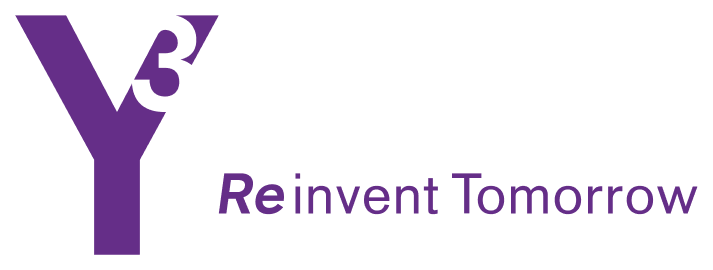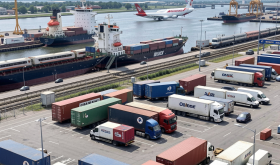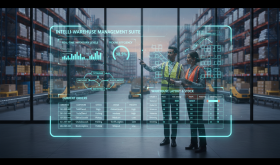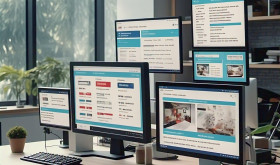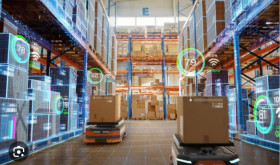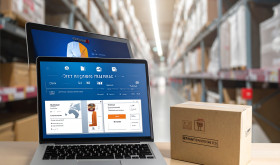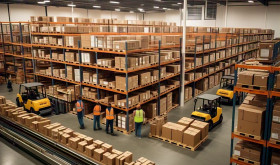
As we head into 2025, supply chain operations across the world continue to deal with major challenges. Transport Management Systems have become key tools to tackle one of the biggest problems: the need to stay strong and quick when things go wrong. From political conflicts to worker shortages and pressure to be eco-friendly, Transport Management System solutions keep changing to help companies get past these roadblocks and keep their operations running.
The Current Supply Chain Scene
The supply chain field now faces many problems that have grown bigger in recent years:
- The world economy faces ups and downs due to changing oil prices hard-to-predict inflation rates, and new trade rules that make markets unstable.
- Political unrest worldwide: The possible comeback of Donald Trump and new tax rules in 2025 make global trade more difficult to understand.
- Worker gaps: Europe’s trucking sector needs more drivers – 17% of driver jobs sit empty, and just 9% of current drivers are below 30 years old.
- Green focus: Companies now put eco-friendly buying at the top of their supply chain plans as people care more about the environment.
- Cyber Threats: Supply chains face higher risks from digital attacks. These attacks have an impact on worldwide product movement.
The Role of Transport Management Systems
In today’s dynamic scene, Transport Management Systems have an essential role for logistics and supply chain experts. Transport Management Systems bring capabilities that help tackle industry challenges:
Real-Time Visibility and Tracking
Current Transport Management System platforms let you track shipments in real time across different ways to move goods. This clear view helps you handle problems and keep customers happy. As ABI Research notes, “consumers and businesses continue to push for more granularity in answering, ‘where’s my stuff?’ with an ETE real-time response”.
AI-Powered Optimisation
AI and ML capabilities in TMS solutions have an impact on route planning, carrier choices, and demand predictions. These tools help businesses to adapt fast when conditions change and make choices based on data.
Risk Management and Scenario Planning
Modern Transport Management System platforms now include risk management tools that help companies to test different scenarios and create backup plans. This proves essential when dealing with political uncertainties and possible supply chain problems.
Sustainability Tracking and Reporting
As green practices become more crucial, Transport Management System solutions now offer features to monitor and report carbon emissions. This helps companies to make greener transport choices and follow new regulations.
Integration with Emerging Technologies
The blend of Transport Management System with blockchain and Internet of Things (IoT) devices has an impact on the security, openness, and productivity of the supply chain.
Addressing Current Challenges with TMS
Mitigating Labour Shortages
Transport Management System solutions help companies to get the most out of their drivers and vehicles. Through better route planning and fewer empty miles, these systems can ease some of the strain from driver shortages. Also, some Transport Management System platforms now include features to boost driver satisfaction and keep them longer such as better schedules and rewards based on performance.
Enhancing Supply Chain Resilience
When global events create uncertainty, Transport Management System platforms help businesses to adapt to sudden changes. For example, when political tensions block a shipping route, a Transport Management System can find new routes or different ways to move goods.
Improving Cost Management
As businesses face money pressures, Transport Management System’s ability to cut costs becomes more crucial. These systems look at large sets of data to find ways to save money, from picking carriers to combining shipments.
Making Compliance and Risk Management Easier
As trade rules change, Transport Management System solutions now include tools to follow rules and handle risks. This includes automatic checks of banned party lists and instant updates about changes in trade policies.
Upcoming Changes in Transport Management System: What’s Next
When we look at Transport Management Systems, we can spot some key changes that are starting to shape its path:
- Cloud-Based Solutions: The move to cloud-based Transport Management System has an impact on small and mid-sized companies by making these systems easier to access, which leads to broader use across the industry.
- Predictive Analytics: Better analytics tools have an influence on forecasting accuracy and help make smarter decisions before problems arise.
- Autonomous Vehicles Integration: Transport Management System needs to adapt to handle and get the most out of self-driving vehicles as they become common on roads.
- Sustainability Focus: Transport Management System tools keep adding new features to help companies cut down their carbon emissions and follow strict environmental rules.
- Cybersecurity Enhancements: As cyber threats keep growing, Transport Management System providers need to focus on strong security to protect valuable supply chain information.
Conclusion
As we deal with the tricky supply chain scene in 2025, Transport Management Systems have become key tools for logistics professionals. These systems have an impact on companies by giving them live updates, AI-based improvements, and reliable risk control features to tackle the biggest problems in the industry.
The Transport Management System market is set to grow from $28.9 billion in 2022 to $45.2 billion by 2027 showing how these systems matter more and more in today’s supply chain management. As technology keeps changing and new problems pop up, Transport Management System solutions will shape how global logistics works in the future.
In today’s world of constant change and uncertainty, putting money into a well-tested and adaptable Transport Management System isn’t just a nice-to-have – it’s essential for companies that want to stay ahead in the global market. Looking forward, Transport Management System will keep driving new ideas in supply chain operations helping businesses handle the tricky parts of worldwide trade and come out stronger when facing ongoing challenges.
